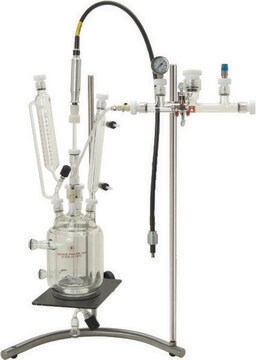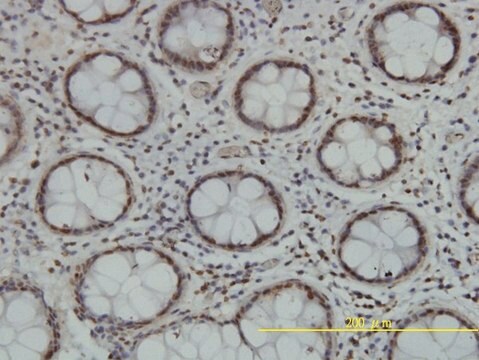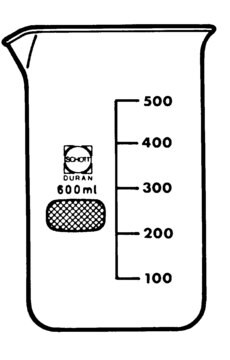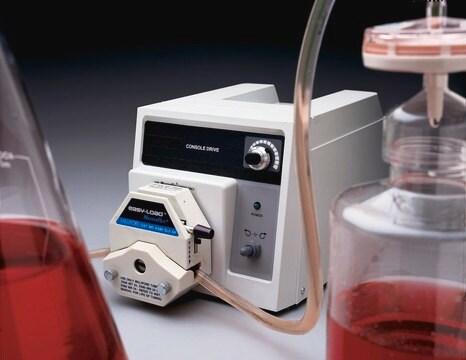WH0008658M1
Monoclonal Anti-TNKS antibody produced in mouse
clone 1A2, purified immunoglobulin, buffered aqueous solution
Sinonimo/i:
Anti-PARP5A, Anti-PARP5a, Anti-PARPL, Anti-TIN1, Anti-TINF1, Anti-TNKS1, Anti-tankyrase, TRF1-interacting ankyrin-related ADP-ribose polymerase
About This Item
IHC (p)
WB
indirect ELISA: suitable
western blot: 1-5 μg/mL
Prodotti consigliati
Origine biologica
mouse
Livello qualitativo
Coniugato
unconjugated
Forma dell’anticorpo
purified immunoglobulin
Tipo di anticorpo
primary antibodies
Clone
1A2, monoclonal
Stato
buffered aqueous solution
Reattività contro le specie
human
tecniche
immunohistochemistry (formalin-fixed, paraffin-embedded sections): suitable
indirect ELISA: suitable
western blot: 1-5 μg/mL
Isotipo
IgG2aκ
N° accesso Genebanck
N° accesso UniProt
Condizioni di spedizione
dry ice
Temperatura di conservazione
−20°C
modifica post-traduzionali bersaglio
unmodified
Informazioni sul gene
human ... TNKS(8658)
Descrizione generale
Immunogeno
Sequence
TERKEGEVAGLDMNISQFLKSLGLEHLRDIFETEQITLDVLADMGHEELKEIGINAYGHRHKLIKGVERLLGGQQGTNPYLTFHCVNQGTILLDLAPEDKEYQSVEEE
Azioni biochim/fisiol
Stato fisico
Note legali
Non trovi il prodotto giusto?
Prova il nostro Motore di ricerca dei prodotti.
Codice della classe di stoccaggio
10 - Combustible liquids
Punto d’infiammabilità (°F)
Not applicable
Punto d’infiammabilità (°C)
Not applicable
Dispositivi di protezione individuale
Eyeshields, Gloves, multi-purpose combination respirator cartridge (US)
Scegli una delle versioni più recenti:
Certificati d'analisi (COA)
Non trovi la versione di tuo interesse?
Se hai bisogno di una versione specifica, puoi cercare il certificato tramite il numero di lotto.
Possiedi già questo prodotto?
I documenti relativi ai prodotti acquistati recentemente sono disponibili nell’Archivio dei documenti.
Il team dei nostri ricercatori vanta grande esperienza in tutte le aree della ricerca quali Life Science, scienza dei materiali, sintesi chimica, cromatografia, discipline analitiche, ecc..
Contatta l'Assistenza Tecnica.







